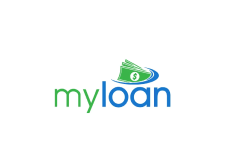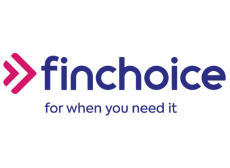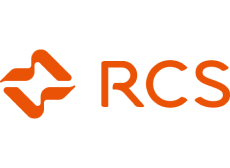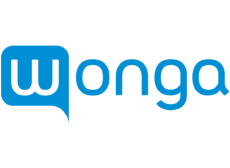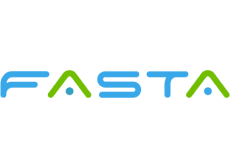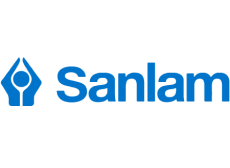Loans For Education
Whether you are looking for short term loans, bursaries or interest free student loans, there are a number of options available to you. These loans are secured by surety, have repayment structures that are flexible, and include grace periods for repayment.
Interest-free student loans
Whether you are an undergraduate or a postgraduate student, you can apply for a study loan. The loan can cover your tuition fees, accommodation, books and textbooks. It’s a great way to help you achieve your educational goals.
Higher education in South Africa is an expensive pursuit. Students must budget for their books, food allowances, stationery and other expenses. It’s also important to understand the terms and conditions of a student loan.
There are many financial institutions in South Africa that offer study loans. However, it is important to know which ones are the best. Choose the loan provider that offers favourable interest rates and repayment options. You can also research the bank’s service history.
The National Student Financial Aid Scheme (NSFAS) helps low-income students to attend tertiary education. The scheme is available to students at 25 public universities in South Africa. NSFAS provides support throughout the application process.
Standard Bank South Africa offers student loans. Students can use the loan to cover tuition fees, textbooks, accommodation and equipment. The loan is available to full-time and part-time students. You can check your eligibility online.
Absa Bank is another popular loan provider for students in South Africa. The bank offers undergraduate and postgraduate programs. The loan comes with preferential interest rates that are linked to academic performance. You can apply for a loan for up to R80,000. The loan is also available to interns and professionals in STEM fields.
Repayment structure
Taking a Boodle loan to go to school is commonplace for many young people in South Africa and the world over. However, putting the money where it counts is a different story. The best way to go about it is to look for a lender that has a proven track record, a solid lending structure, and a good understanding of the industry. The best lenders will not only have a good understanding of the industry, but also be willing to offer competitive rates. This is especially true for loans with a low monthly interest rate.
In order to ensure that the best lenders are able to compete, the government has introduced the LLR, or lender of last resort. The LLR is a new entity that is a governmental entity in its own right, and serves as a go-between between students and the lending community. Its mission is to ensure that loans are administered in a transparent and accountable manner. Its role is to ensure that loans are not abused, and that students receive a quality education at the lowest cost possible. The LLR has received numerous accolades from both the public and private sectors, and has shown itself to be a worthy contender for the crown of the king of the loan castles. The LLR is able to offer loans at interest rates of up to 25%. For more information about this new lender, please visit the Department of Education’s website.
Grace periods
Depending on what R15000 loan you have, the length of the grace period can vary from one month to six months. This should give you plenty of time to find a job and adjust to life after college. Getting a job isn’t a guarantee though. You should check with your financial aid office to see if your loan qualifies.
The best way to find out is to speak with a knowledgeable representative. In most cases, the best advice is to take a look at all your loans and see if any are eligible for deferment or forbearance. If you decide to move, make sure to setup payments for your new loans as soon as possible. You may also consider consolidating your loans into one easy-to-manage monthly payment.
Taking the time to consider your options can make all the difference in the world. Having multiple loans at different interest rates can make managing payments challenging. If you can’t take on all your loans at once, consider refinancing. If you have a good credit score, you may even be eligible for a mortgage. If you aren’t, you may be subject to a higher interest rate. You should always consider the best option for your situation.
The best way to make sure you get the most out of your education loan is to take the time to do your research. This can be done by visiting your lender’s website, talking with a loan specialist, or reading a loan guide.
Secured by surety
Getting a loan for education can be a great way to bridge the gap between your student’s tuition and your student’s living expenses. However, a secured education loan comes with its own set of risks. In most cases, a credit provider will require the borrowers to sign a surety in exchange for a loan. The surety can be a fixed deposit or an insurance policy.
Suretyships are a common feature in South African lending. A surety can help bring down the cost of lending, but consumers must be aware of the risks.
The National Credit Act, or NCA, provides some protection for sureties. In particular, the act protects the guarantor from reckless lending, and the guarantor from being taken to court for debt recovery.
However, the National Credit Act is not the only law protecting sureties. The Banking Ombudsman’s office has warned of the dangerous sureties that can crop up in South Africa. Specifically, the ombudsman has identified the “serious” risks associated with suretyships.
There are many reasons why a student may need a loan, but one of the most common reasons is that the student does not earn a living. Lenders will usually require proof of income, including a letter from the employee confirming that he/she is employed. If the borrower is a government employee, he/she may qualify for special rates.
The National Credit Act is no doubt a good step towards consumer protection, but the NCA doesn’t apply to every surety. It also doesn’t apply to suretyships that have no relation to lending. Nonetheless, the NCA does require credit providers to disclose the total value of a credit facility.
Short-term loans
Depending on your financial situation, there is no reason why you can’t qualify for a short-term loan. These loans are typically offered by banks, credit unions, and other financial institutions. They are also known as unsecured loans because you do not need to provide any collateral. Moreover, these types of loans are a good way to secure some quick cash, especially if you need it immediately.
The most obvious application of the short-term loan is to pay for your tuition. Most banks offer education loans for both full-time and part-time students. The repayment terms vary depending on your educational goals and budget. While you don’t have to pay back the loan in one go, you should expect to make several payments over the course of the semester. The interest rates on these loans can be surprisingly high, so make sure to do your homework before deciding which lender is best for you.
While you’re at it, it’s also a good idea to check your bank’s history before making a decision. Some banks are stricter than others. Depending on your financial situation, you may want to consider a lender with more flexible requirements. If you’re a part-time student, you should also consider applying for financial aid through the National Student Financial Aid Scheme.
If you’re looking for the best short-term loans for education in South Africa, you’ll want to look at the various lenders available. There are many reputable companies to choose from, so do some research before you make your decision.
Bursaries
Various institutions offer bursaries for education in South Africa. These bursaries are awarded on the basis of academic performance and financial need. The bursaries are meant to help students gain more time to learn and enhance their skills. In addition to this, they also provide employment opportunities after they have completed their studies.
There are two types of bursaries available: the performance-based and the means-tested bursaries. The former is awarded on the basis of outstanding academic performance, while the means-tested bursaries are usually awarded on the basis of financial need. Applicants must meet all the requirements in order to qualify for the bursaries.
If you are a South African citizen and wish to pursue a teaching career, you can apply for a bursary. These bursaries are provided by the Department of Basic Education. These bursaries are designed to cover the tuition fees, accommodation and learning materials of the students. Applicants must be admitted to a course in a recognized higher education institute.
Another source of bursaries for education in South Africa is the National Student Financial Aid Scheme. This scheme offers bursaries for students who are studying in public television and vocational technical colleges. There are more than fifty public television and vocational technical colleges in South Africa.
The Allan Gray Orbis Foundation is a South African non-profit organization that offers scholarships to talented students. These scholarships are offered to local, international and disadvantaged students. They cover stipends for books, sports equipment and school trips.

